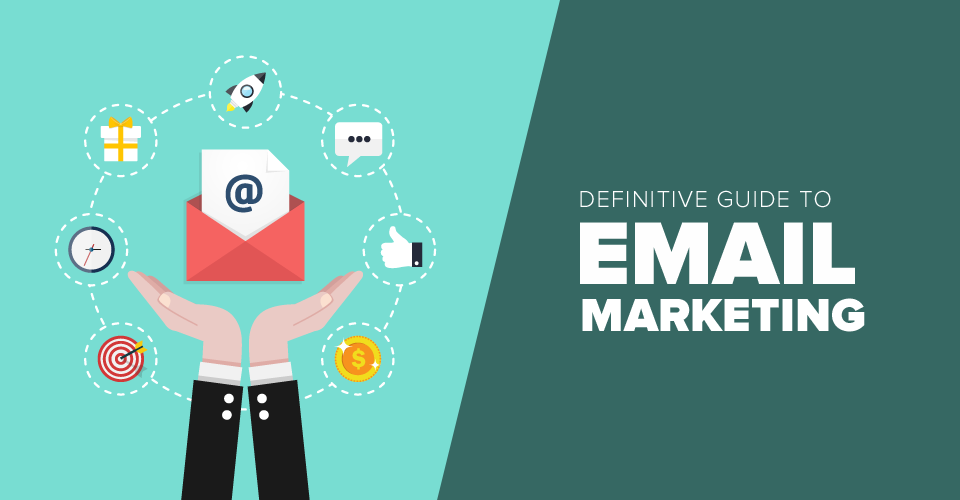Email Marketing: Unleashing the Power of Personalized Communication.
Introduction
In the age of digital communication, email marketing emerges as a versatile and effective strategy for businesses to connect with their target audience. Email marketing involves sending targeted messages and promotional content directly to the inbox of potential customers and existing subscribers. This approach allows businesses to establish meaningful relationships with their audience, drive engagement, and nurture leads through personalized communication. In this article, we will explore the significance of email marketing, its key benefits, and how businesses can leverage it to achieve marketing success.
Understanding the Significance of Email Marketing
1. Direct and Personalized Communication
Email marketing provides a direct line of communication with customers and prospects. By sending personalized messages, businesses can tailor content to the recipient’s preferences and interests, creating a more engaging and relevant experience. This personal touch fosters a sense of connection and trust, making subscribers more receptive to the brand’s message.
2. Cost-Effective Marketing Strategy
Compared to traditional advertising channels, email marketing is a cost-effective approach. It eliminates printing and distribution expenses while enabling businesses to reach a wide audience instantly. Additionally, automated email campaigns allow for efficient communication without significant manual effort.
3. Effective Lead Nurturing
Email marketing is a powerful tool for lead nurturing. By delivering valuable content to leads at different stages of the sales funnel, businesses can guide prospects towards conversion. Automated drip campaigns and targeted follow-ups keep prospects engaged and informed, increasing the likelihood of converting them into loyal customers.
The Key Benefits of Email Marketing
1. Increased Conversion Rates
Email marketing has the potential to drive higher conversion rates compared to other marketing channels. Since emails are tailored to specific audience segments, the content is more relevant to the recipients, leading to increased click-through rates and conversions.
2. Measurable Results and Insights
Email marketing platforms offer detailed analytics, providing valuable insights into the performance of each campaign. Businesses can track metrics such as open rates, click-through rates, and conversion rates, enabling them to fine-tune their strategies for optimal results.
3. Building Customer Loyalty and Retention
Consistent and valuable communication through email nurtures customer relationships, fostering loyalty and repeat business. By delivering exclusive offers, personalized recommendations, and relevant updates, businesses can keep customers engaged and invested in their brand.
Leveraging Email Marketing for Success
1. Building a Quality Subscriber List
A quality subscriber list is the foundation of successful email marketing. Encourage website visitors and customers to subscribe by offering incentives like exclusive content, discounts, or a newsletter. Avoid purchasing email lists, as they may contain uninterested or spam-sensitive recipients.
2. Personalizing Email Content
Personalization is key to effective email marketing. Segment your subscriber list based on demographics, behavior, and preferences, and tailor content accordingly. Use the recipient’s name in the email and provide content that aligns with their interests and past interactions with your brand.
3. Automating Email Campaigns
Automation streamlines email marketing efforts and ensures timely and relevant communication. Implement automated drip campaigns for lead nurturing, welcome sequences for new subscribers, and personalized product recommendations based on previous purchases.
4. Engaging Subject Lines and Compelling Content
Craft attention-grabbing subject lines to entice recipients to open the email. The content should be engaging, concise, and visually appealing. Use a clear call-to-action to guide recipients towards the desired action, whether it’s making a purchase, signing up for an event, or downloading a resource.
Conclusion
Email marketing is a powerful tool for businesses seeking to establish meaningful connections with their audience and drive engagement. Through direct and personalized communication, businesses can nurture leads, build customer loyalty, and drive conversions effectively. By leveraging the key benefits of email marketing and implementing best practices, businesses can unlock the full potential of this versatile marketing strategy and achieve marketing success. So, embrace the power of email marketing, and embark on a journey to foster lasting relationships and drive growth in the digital landscape.


![30 Brilliant Marketing Email Campaign Examples [+ Template]](https://blog.hubspot.com/hs-fs/hubfs/email-marketing-examples_29.webp?width=595&height=400&name=email-marketing-examples_29.webp)